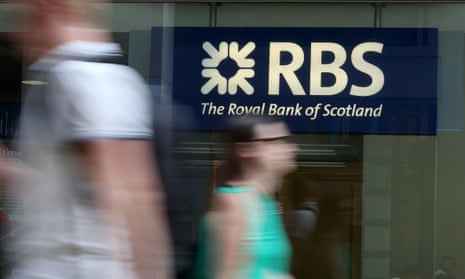Nearly 50,000 UK-based staff at banking giant RBS Group have been told they will not go back into the office until 2021, just days after Boris Johnson said employers should begin encouraging people back into the workplace.
The company, in which the British taxpayer has a 62% stake, said the “vast majority” of employees who are working from home would continue to do so until next year. It had previously said they would do so until at least the end of September.
The announcement affects 49,000 staff in the UK, where on Friday, the prime minister said he was changing government guidance so that from 1 August employers would be given discretion to bring people back into the office where it was safe to do so.
“If everybody can discuss it in a serious and grown-up way, if we can be confident that the places of work are covid-secure – which I’m sure we can – then employers, working with their employees, should be encouraging people to get back to work where that is right for that employee,” Johnson said.
RBS, whose high street brands include Royal Bank of Scotland and Natwest, told its employees that its priority was to look after the safety and wellbeing of customers and colleagues.
“Like we’ve done throughout the pandemic the decision has been made carefully, including considering the latest guidance from the UK government on Friday and our own health and safety standards and procedures,” it said.
“It’s a cautious approach but we feel the right one to take currently.”
The Edinburgh-based bank said it had kept 95% of its branches open during lockdown, and about 10,000 of its staff had continued to work in them. A further 400 people whose jobs could not be done from home were asked to return to offices and call centres in June.
It said that for those who had returned to its offices, hot desking had been banned, and there were strict measures in place to ensure social distancing.
A survey by the ONS found that between 8 and 12 July, half of working adults had travelled to work, the highest proportion since lockdown began, but business leaders have suggested that the new government guidance would not lead to an immediate change in approach by companies.
The disappearance of office workers from city centres has had a devastating impact on businesses that depend on them for trade. Earlier this month sandwich chain Pret a Manger announced it was closing 30 branches and said footfall was down by 74% year on year as a result of the pandemic.
